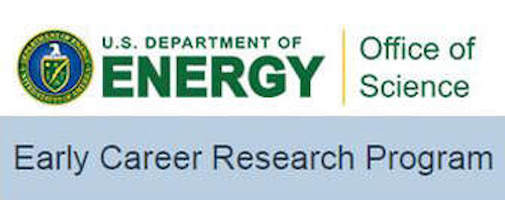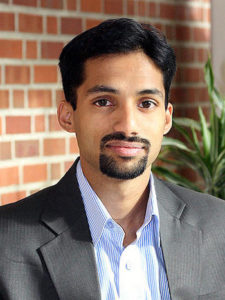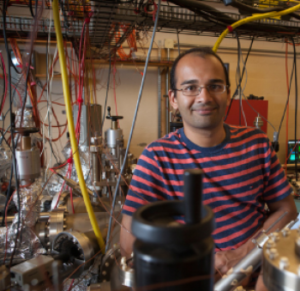
BOSTON (TIP): The U.S. Department of Energy (DoE) recently announced the names of 76 scientists who have been selected for their 2020 Early Career Research Program. The list includes five Indian Americans.
They are: Arun Devaraj, Pacific Northwest National Laboratory (WA), Ranganathan Gopalakrishnan, University of Memphis, Siddharth Karkare, Arizona Board of Regents for Arizona State University, Vedika Khemani, Stanford Junior University, and Karthish Manthiram, MIT.
Under the program, university-based researchers will receive grants for at least $150,000 per year and researchers based at DOE national laboratories will receive grants for at least $500,000 per year. The research grants are planned for five years and will cover salary and research expenses.

Dr. Arun Devaraj is a Material scientist in the Physical and Computational Sciences Directorate. His research focus is in microstructure-property relationship of metallic alloys, oxides and composite materials. Dr. Devaraj has extensive experience specifically in applying atom probe tomography (APT) for material characterization, in addition to scanning electron microscopy (SEM), energy dispersive x-ray spectroscopy (EDS), focused ion beam (FIB), transmission electron microscopy (TEM), x-ray absorption near edge spectroscopy (XANES), scanning transmission x-ray microscopy (STXM) and in-situ high energy x-ray diffraction (HEXRD) at beamlines of various DOE synchrotron facilities.

Ranganathan Gopalakrishnan is an Assistant Professor in the Department of Mechanical Engineering at the University of Memphis. His research focuses on applying aerosol science and technology to Additive Manufacturing (AM) processes as well as fundamental aspects of aerosol science.

Siddharth Karkare is an assistant professor in the Department of Physics at Arizona State University. He comes to ASU following a 3-year post-doctoral research position at the Lawrence Berkeley Lab. His research is at the interface of accelerator physics and nano-science and focuses on the generation and manipulation of bright electron beams for various applications ranging from meter-scale electron microscopes to large km-scale particle colliders and free-electron lasers.

Vedika Khemani Assistant Professor of Physics at Stanford completed her undergraduate studies at Harvey Mudd College, and her PhD at Princeton University. She was a Junior Fellow at Harvard University before starting as assistant professor at Stanford University. She works on theoretical investigations of quantum many-body systems and how they evolve dynamically.

Karthish Manthiram, the Theodore T. Miller Career Development Chair and Assistant Professor in Chemical Engineering in MIT, is working to synthesize chemicals and materials that we encounter every day in a sustainable manner that eliminates the carbon footprint. With the support of the DoE Early Career Award, the Manthiram lab is specifically looking at how water can be used as a source of oxygen atoms to convert alkenes, which are two carbon atoms attached by a double bond, into an epoxide, a triangular configuration of two carbon atoms and an oxygen atom.





Be the first to comment